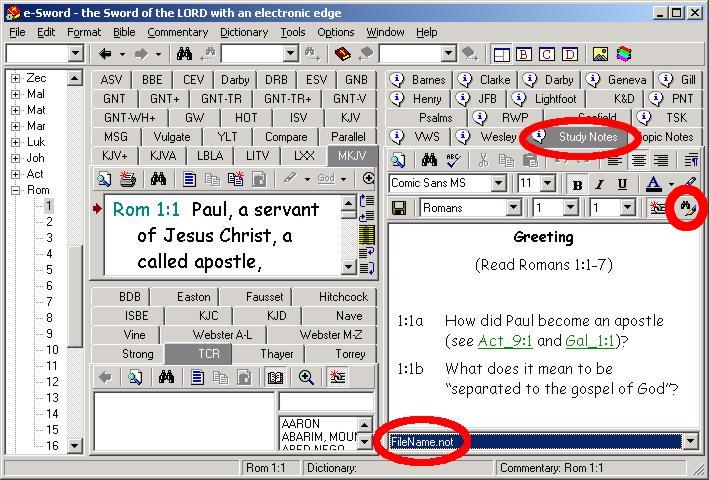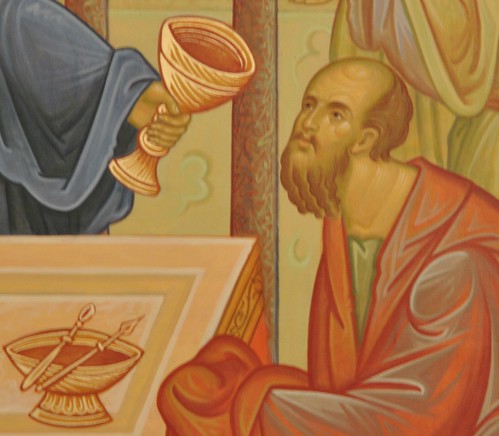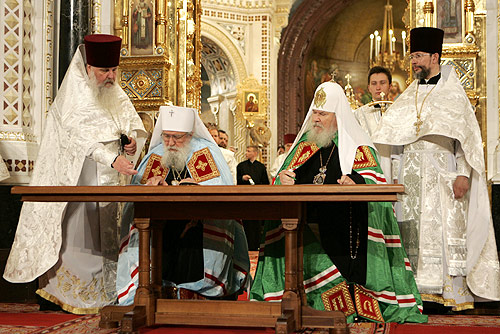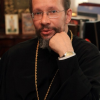
Martyr Theodosia of Constantinople, defender of Icons
David J. Dunn has begun a series of blog posts that continue issues related to our discussion on Ancient Faith Radio. His first post is
Ancient Faith Continued: Theology and Symphony. I will post his comments in italics, and then my response:
I have met a lot of Orthodox Christians who see the Tradition as an unchanging deposit. They basically apply a naive fundamentalist biblical literalism to the Tradition of the Orthodox Church (“Tradition” with a “big-T” in the Orthodox Church refers to the Bible, creeds, rituals, dogmas, and diverse opinions of ancient theologians). For them, “the Truth” was delivered once in history, its meaning is clear, and thus our theology is unchanging and unambiguous.
We consider the Tradition to be an unchanging deposit, because as a matter of fact, this is what the Church believes it to be. St. Vincent of Lerins, who is
famous for his definition of "Catholicity," wrote, commenting on 1 Timothy 6:20:
"But it is worth while to expound the whole of that passage of the apostle more fully, “O Timothy, keep the deposit, avoiding profane novelties of words.” “O!” The exclamation implies foreknowledge as well as charity. For he mourned in anticipation over the errors which he foresaw. Who is the Timothy of today, but either generally the Universal Church, or in particular, the whole body of The Prelacy, whom it behoves either themselves to possess or to communicate to others a complete knowledge of religion? What is “Keep the deposit”? “Keep it,” because of thieves, because of adversaries, lest, while men sleep, they sow tares over that good wheat which the Son of Man had sown in his field. “Keep the deposit.”
What is “The deposit”? That which has been intrusted to thee, not that which thou hast thyself devised: a matter not of wit, but of learning; not of private adoption, but of
public tradition; a matter brought to thee, not put forth by thee, wherein thou art bound to be not an author but a keeper, not a teacher but a disciple, not a leader but a follower. “Keep the deposit.”
Preserve the talent of Catholic Faith inviolate, unadulterate. That which has been intrusted to thee, let it continue in thy possession, let it be handed on by thee. Thou hast received gold; give gold in turn. Do not substitute one thing for another. Do not for gold impudently substitute lead or brass. Give real gold, not counterfeit. O Timothy! O Priest! O Expositor! O Doctor! if the divine gift hath qualified thee by wit, by skill, by learning, be thou a Bazaleel of the spiritual tabernacle, engrave the precious gems of divine doctrine, fit them in accurately, adorn them skilfully, add splendor, grace, beauty. Let that which formerly was believed, though imperfectly apprehended, as expounded by thee be clearly understood. Let posterity welcome, understood through thy exposition, what antiquity venerated without understanding.
Yet teach still the same truths which thou hast learnt, so that though thou speakest after a new fashion, what thou speakest may not be new" (
St. Vincent of Lerins, Commonitory, Ch. XXII, NPNF2, 5:147).
And commenting on Galatians 1:8, but also alluding to Jude 1:3 ("...contend earnestly for the faith which was once for all delivered to the saints), St. Vincent says:
"Why does he say “Though we”? why not rather “though I”? He means, “though Peter, though Andrew, though John, in a word, though the whole company of apostles, preach unto you other than we have preached unto you, let him be accursed.” Tremendous severity! He spares neither himself nor his fellow apostles, so he may preserve unaltered the faith which was at first delivered. Nay, this is not all. He goes on “Even though an angel from heaven preach unto you any other Gospel than that which we have preached unto you, let him be accursed.” It was not enough for the preservation of the faith once delivered to have referred to man; he must needs comprehend angels also. “Though we,” he says, “or an angel from heaven.” Not that the holy angels of heaven are now capable of sinning. But what he means is: Even if that were to happen which cannot happen,—
if any one, be he who he may, attempt to alter the faith once for all delivered, let him be accursed" (
St. Vincent of Lerins, Commonitory, Ch. VIII, NPNF2, 5:136-137).
This of course does not mean that Tradition does not grow in the sense that it expands through history, as the Church confronts heresy, and as saints arise and add to the writings which guide and inform the Church. But as St. Vincent says in
chapter 23 of his Commonitory, this is natural growth, not alteration.
David Dunn:
"I disagree with this view. That does not mean I am a “liberal” theologian. I do not think that Tradition and culture are two “texts” with more or less equal weight. The Tradition is not fixed, but neither is it in constant, ambiguous flux. I see the Tradition more like a life-giving stream. It maneuvers through history, swinging sometimes this way and sometimes that in response to its place in the world at a particular point and time. For me, the Tradition is not nebulous, but it is nimble. We are caught up in that stream right now. We have a pretty good sense of where we have been, which gives us some indication of where we are going, but the exact “shape” of our destination and when we will get there are not entirely clear. I think that is why Fr. John Meyendorff said we have a “living tradition.” The Tradition is not an artifact of the past because it is where we live. The church is its tradition."
We have a living Tradition in that this Tradition is not just found in books, but is alive in the Church. There are still aspects of our Tradition that are not found in books, and require training within the Church... as anyone who has ever read liturgical rubrics can attest. The book may say "the priest stands in the usual place, and does the usual thing", but only by being instructed by a priest who knows what that means can another priest really understand the rubric. We do know what the Tradition will be in essence, because it cannot be other than what it always has been.
David Dunn:
"To see Tradition as a fixed and fully knowable “thing” is to live in intellectual dishonesty, for it requires pretending that the way we view tradition is not informed by our moment in history. It is to pretend that we look at doctrine in the exact same way as our spiritual ancestors."
If David had said that we always have to be aware that our understanding of the Tradition as individuals is imperfect, then I would have no argument with him, however, the Church as a whole does have a full understanding of its Tradition, and if we remain in that Church and allow ourselves to be guided by that Church we will not stray.
But rather than speak in abstractions, let's take a concrete example. David is not sure that the Church will always condemn homosexuality, and does not think we should oppose gay marriage in the wider culture. The Church has a very clear Tradition that homosexuality is a sin, and it has a clear Tradition that marriage can only be between a man and woman who are eligible to be lawfully married to one another. The contemporary Church has also issued numerous statements at the level of the local Church and also on the pan-Orthodox level that gay marriage is unacceptable, and that Orthodox Christians should actively oppose it in the wider culture. So the question for David is, why are you rejecting the instruction of the Church?
David Dunn:
"It is also not very Orthodox. The Tradition is about God, and the ideal way of knowing God in the Orthodox Church is to unknow God. We strive for apophasis, which is the experience of God as mystery. This does not mean God is irrational or that we should be irrational. It means God is mystery. Therefore the Orthodox Christian must always destroy her own intellectual idols. That is why I think fundamentalist views of the Tradition are unOrthodox."
David asserts that this in not very Orthodox, but has yet to cite any evidence from Tradition to back up that assertion. Apophatic theology is an approach to theology, but it does not negate God's self revelation, which we find recorded in Scripture and Tradition.
Also, introducing the word “fundamentalist” is not helpful, because basically when the word is used outside of its historic meaning (in reference to Protestant Fundamentalists) it is simply used as a synonym for “stupid”. When I have asked people who use the term in reference to Orthodox Christians, and have asked them to define what they mean by the term, I have yet to get a coherent definition that would not also condemn the Fathers and Saints of the Church.
David Dunn:
"To put it another way, for me, I cannot think of the Tradition as a deposit because I do not think I have faith in a set of assertions. I think faith means to trust in that for which I hope, which means it is a kind of love."
David is equivocating here. Faith certainly means trust, but when we speak of "The Faith", it necessarily is a Faith that has actual content, that is either Orthodox or is not.
David Dunn:
"The Orthodox ideal is apophasis because theology is nothing more than to love God with the intellect. Truth is that which we do not understand but love anyway. That is why I think we should never treat the Tradition as if it is something everyone can understand if they only think about it rationally. The way we think about the Tradition must always unthink itself because God is love, and love is infinite. God is always an undiscovered country."
I think David will be hard pressed to produce a single Father or Saint of the Church who would say that the Truth of the Orthodox Faith is something that "we do not understand, but love anyway," or that "The way we think about the Tradition must always unthink itself because God is love..." This may fly in a liberal Protestant seminary, but it is completely foreign to the Tradition of the Church.



























